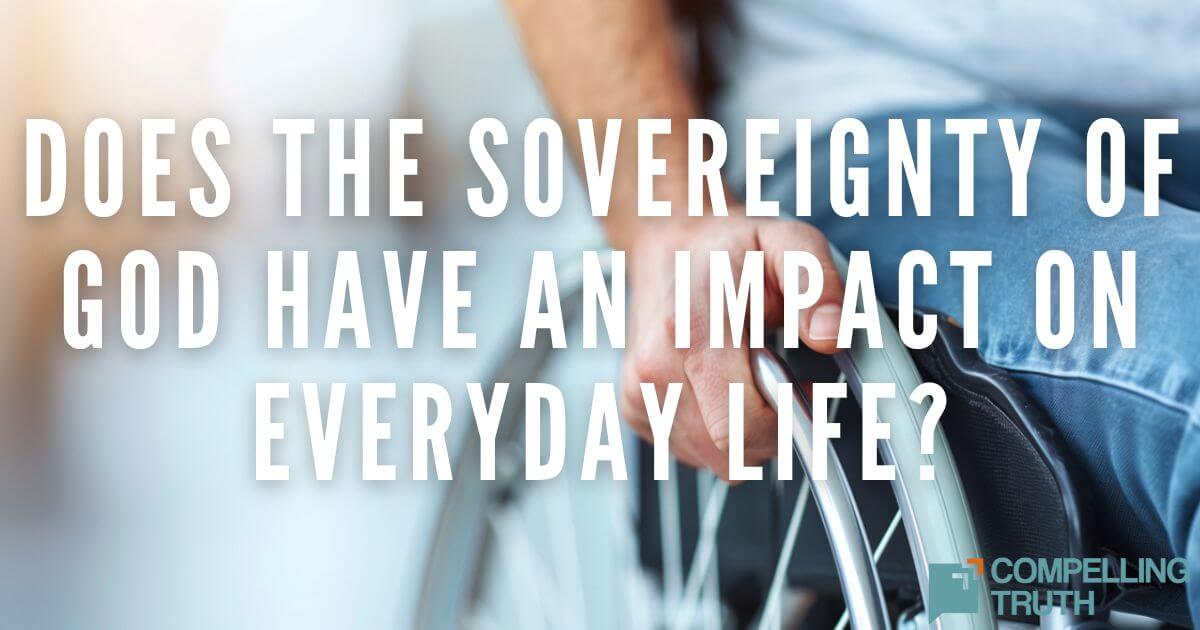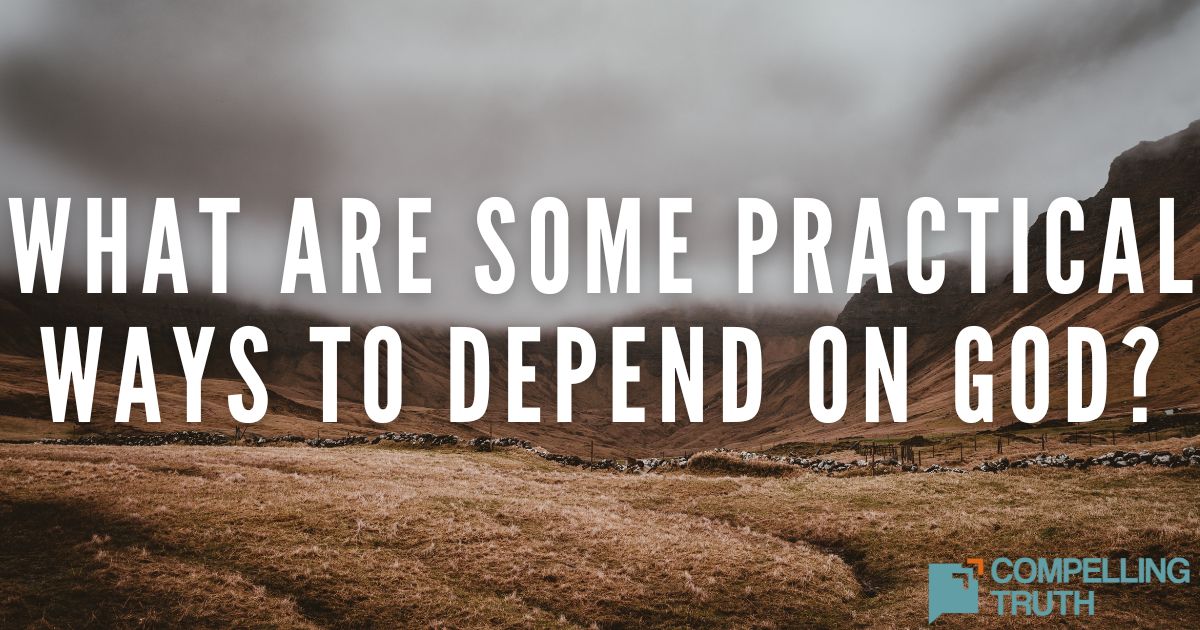Divine providence is a doctrine which describes God's ability to manage or rule all things in His desire to express His love and care. In short: God is in control.
Some believe that chance or fate rules the universe, but the Bible shows us otherwise. It is evident from the Bible that God controls the universe (Psalm 103:19), the physical world (Matthew 5:45), the nations (Psalm 66:7), and human destiny (Galatians 1:15).
God's will and purposes can only be pursued and accomplished if He is sovereign. The promises of God would be meaningless were He not able to accomplish them. He can only fulfill His promises if divine providence is true, if God is actually in control. As part of this divine providence, God has created a natural order. When humans discover the laws of nature, we are simply understanding how God arranged this world to work. Nature works the way it does because God determined it to be so. God still has authority over the laws of nature and can intervene in the natural order of things if and when He so chooses.
Divine providence is true, and yet, at the same time, each person has free will—the ability to make consequential choices. Coupling the truth of human free will with God's divine providence is paradoxical, for sure. Yet we know both things are true.
We see an example of divine providence and human free will in the early life of Saul/Paul. As a Jewish religious leader, Saul led the persecution of the early church (his will), but later understood that he had set himself against God's will for his life (Acts 26:14). Paul became the "apostle to the Gentiles" and his God-inspired letters make up much of the New Testament.
We can also see both free will and God's sovereignty in the life of Joseph. Joseph's brothers sold him into slavery, which then led to his imprisonment in Egypt. That imprisonment eventually led to Joseph becoming prime minister. In this position, he was able to save the lives of his family, including his brothers, during a famine (Genesis 50:15–21). Joseph was instrumental not only in saving his family members, but in saving many in the land. Joseph told his brothers, "As for you, you meant evil against me, but God meant it for good, to bring it about that many people should be kept alive, as they are today" (Genesis 50:20). The will of people and the will of God work together to accomplish God's goals.
In one of the best known stories in the Bible, Judas Iscariot lies, deceives, steals, and ultimately betrays Jesus into the hands of His enemies. God used Judas' choices to accomplish His will in providing salvation through Jesus' death and resurrection. However, Judas was still held accountable for his choices. Jesus said, "The Son of Man goes as it has been determined, but woe to that man by whom he is betrayed!" (Luke 22:22).
God grants us meaningful choice, yet is still completely in control. He will judge all sin because He is holy and just. He will also accomplish His kingdom plan and purposes. For those who love God, He will cause all things to ultimately work together for good (Romans 8:28). We do not understand why God permits everything He does, but we can trust in His character. He is sovereign and He is good.
Maybe the most pointed verse in the Bible about divine providence and the circumstances people create is Romans 8:28: "We know that for those who love God all things work together for good, for those who are called according to his purpose." It is important to note that "all things" means "all" things. All things work together to accomplish God's will only because God is sovereign.
Though God often works indirectly (in that His will is accomplished because of what He set into motion, such as the physical laws of nature), He does sometimes dramatically step into history or our lives in an extraordinary way to accomplish His will. In Saul/Paul's case, He appeared as a blazing light—blinding Saul for three days (Acts 9:1–19).
God must be in control of all things, or He would simply not be God. Humans must have some measure of free will or we would simply be robots. Things work best when we submit ourselves to God, trusting in Him and following His ways.
Some believe that chance or fate rules the universe, but the Bible shows us otherwise. It is evident from the Bible that God controls the universe (Psalm 103:19), the physical world (Matthew 5:45), the nations (Psalm 66:7), and human destiny (Galatians 1:15).
God's will and purposes can only be pursued and accomplished if He is sovereign. The promises of God would be meaningless were He not able to accomplish them. He can only fulfill His promises if divine providence is true, if God is actually in control. As part of this divine providence, God has created a natural order. When humans discover the laws of nature, we are simply understanding how God arranged this world to work. Nature works the way it does because God determined it to be so. God still has authority over the laws of nature and can intervene in the natural order of things if and when He so chooses.
Divine providence is true, and yet, at the same time, each person has free will—the ability to make consequential choices. Coupling the truth of human free will with God's divine providence is paradoxical, for sure. Yet we know both things are true.
We see an example of divine providence and human free will in the early life of Saul/Paul. As a Jewish religious leader, Saul led the persecution of the early church (his will), but later understood that he had set himself against God's will for his life (Acts 26:14). Paul became the "apostle to the Gentiles" and his God-inspired letters make up much of the New Testament.
We can also see both free will and God's sovereignty in the life of Joseph. Joseph's brothers sold him into slavery, which then led to his imprisonment in Egypt. That imprisonment eventually led to Joseph becoming prime minister. In this position, he was able to save the lives of his family, including his brothers, during a famine (Genesis 50:15–21). Joseph was instrumental not only in saving his family members, but in saving many in the land. Joseph told his brothers, "As for you, you meant evil against me, but God meant it for good, to bring it about that many people should be kept alive, as they are today" (Genesis 50:20). The will of people and the will of God work together to accomplish God's goals.
In one of the best known stories in the Bible, Judas Iscariot lies, deceives, steals, and ultimately betrays Jesus into the hands of His enemies. God used Judas' choices to accomplish His will in providing salvation through Jesus' death and resurrection. However, Judas was still held accountable for his choices. Jesus said, "The Son of Man goes as it has been determined, but woe to that man by whom he is betrayed!" (Luke 22:22).
God grants us meaningful choice, yet is still completely in control. He will judge all sin because He is holy and just. He will also accomplish His kingdom plan and purposes. For those who love God, He will cause all things to ultimately work together for good (Romans 8:28). We do not understand why God permits everything He does, but we can trust in His character. He is sovereign and He is good.
Maybe the most pointed verse in the Bible about divine providence and the circumstances people create is Romans 8:28: "We know that for those who love God all things work together for good, for those who are called according to his purpose." It is important to note that "all things" means "all" things. All things work together to accomplish God's will only because God is sovereign.
Though God often works indirectly (in that His will is accomplished because of what He set into motion, such as the physical laws of nature), He does sometimes dramatically step into history or our lives in an extraordinary way to accomplish His will. In Saul/Paul's case, He appeared as a blazing light—blinding Saul for three days (Acts 9:1–19).
God must be in control of all things, or He would simply not be God. Humans must have some measure of free will or we would simply be robots. Things work best when we submit ourselves to God, trusting in Him and following His ways.



